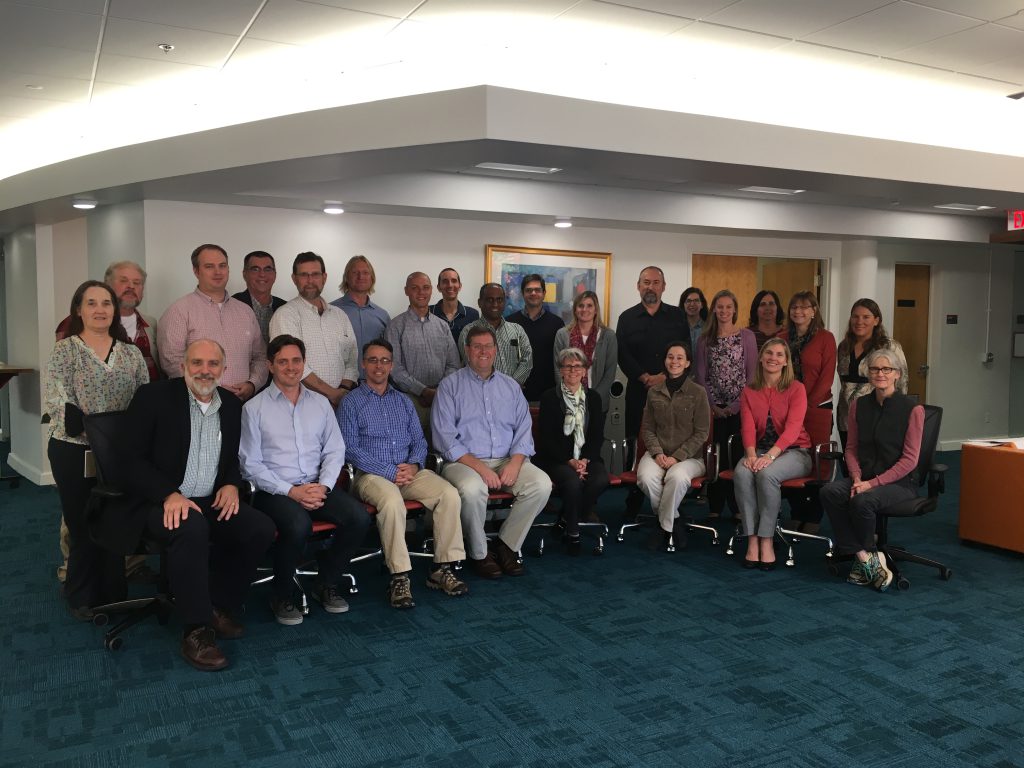SE CSC Holds Workshop on Ecological Drought in the Southeast

Eighteen scientists came together in Raleigh on November 16-17 for the Southeast Ecological Drought Workshop. Ecological drought is defined as the prolonged and widespread deficit in soil moisture, or biologically available water, that imposes multiple stresses in terrestrial and aquatic ecosystems. The DOI Climate Science Centers and the USGS National Climate Change and Wildlife Science Center have chosen this emerging climate science field as a research focus area. The Southeast Ecological Drought workshop was one in a series of meetings that are aimed at compiling existing knowledge of the ecological impacts of, resistance to, and recovery from drought.
Participants were from USGS science centers, US Forest Service, USEPA, Eastern Band of Cherokee Indians, Landscape Conservation Cooperatives, and academia. Their expertise represented relevant scientific disciplines such as climate science, hydrology, and terrestrial, aquatic, and coastal ecology, and spanned important geographic regions of the Southeast. Participants engaged in several whole-group activities as well as breakout sessions designed to identify specific ecosystem values and threats in the region and to characterize the state of our knowledge as well as potential research activities to address knowledge gaps.
Findings from the workshop will be synthesized in a fact sheet summary (due out in January 2017) and incorporated into a national report. The workshop products will inform SE CSC strategic planning efforts and help us better understand drought issues and management implications in the Southeast.
From Climate Central: What a Warmer Future Means for Southeastern Wildfires
From Fivethirtyeight: The Southeast Is Becoming A Wildfire Hotspot
